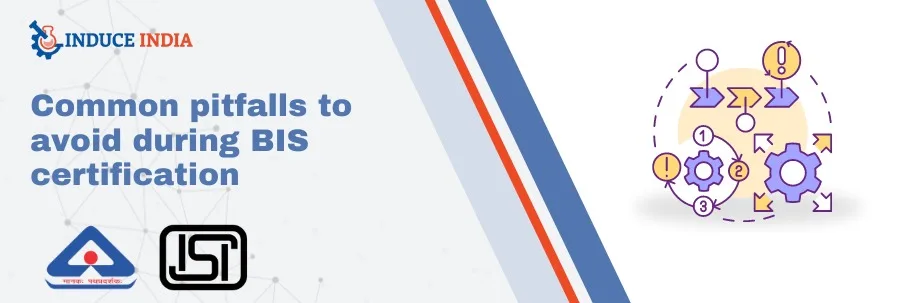If you are a manufacturer looking for BIS certification for your products, as you know its role and importance, then this guide is the perfect match for your search query. It’s important to remember that obtaining BIS certification involves several steps that require expert guidance and precision. Any errors in the process can cause delays or even result in the cancellation of the application. This guide will help you learn the common mistakes you should avoid during your BIS certification process.
BIS Certification: A Brief Overview
BIS stands for Bureau of Indian Standards, also recognized as the National Standard Body of India (NSB). BIS is controlled by the Ministry of Consumer Affairs, Government of India, and is responsible for maintaining the quality and safety of products manufactured, sold, and important in India, as per the standards set by the ministry.
BIS manages several responsibilities such as compliance with Indian standards, foreign manufacturers’ certification schemes, training services, testing & calibration services, registration schemes for electronic and information technology goods, etc.
The Bureau of Indian Standards (BIS) certificate is a hallmark of quality and obedience. This mark indicates that a product meets the standard set by the Indian government. Without this mark, manufacturers cannot stay for long in the market, since this mark is directly connected with the customer’s trust and safety.
The level of importance BIS certification holds in every step of product selling, manufacturing, importing, and brand building, is the same level of difficulty a manufacturer faces during the BIS certification process. It looks like a daunting task to manufacturers because of certain pitfalls for which manufacturers usually fall because of incomplete knowledge or lack of guidance.
Let’s understand the mistakes to avoid during the BIS certification process
5 Common mistakes to avoid in BIS certification
Obtaining bis certification online or offline requires error-free efforts because of the complexity of the process. Below are some of the potential pitfalls that may obstruct the process.
- Incomplete Documentation: The most common mistake made by manufacturers or organizations is having incomplete documentation. Along with application submission for BIS certification, various documents are asked for verification and proof. The unavailability of the same causes trouble for the manufacturer, leading to a delay in the certification process. Not only incomplete documentation but any error or poorly updated information can also obstruct the process. To avoid this manufacturers need to make sure that all the required documents are correctly filled and submitted.
- Non-compliance with Standards: Another mistake that manufacturers make is not checking the documents properly before applying. It is seen many a time that documents lack accuracy of information, or they are not reliable enough to satisfy the BIS officials. Double-check that your product meets BI certification before applying.
- Neglecting Testing Requirements: Manufacturers usually try to rush the process, where they get impatient with the testing requirements and results. During the BIS certification process, product testing is required to check whether the product complies with the regulatory standards set by BIS. Neglecting this testing or performing the test from unauthorized laboratories can create hurdles in the certification process. Manufacturers are required to submit products for proper testing as per BIS guidelines to avoid delays.
- Incorrect Product Classification: This is the first and crucial step in the application process, where manufacturers need to find and decide on the right category for their product. This category includes all the standards set by the ministry which need to be honestly followed by the manufacturer when producing the product and even in the manufacturing process. Misclassifying your product can lead to rejections or delays in certification.
- Ignoring Renewal deadlines: It is necessary to keep updating the documents and the certificates that you will be submitted along with application. You also need to keep on renewing the BIS certification with the help of these verification documents hence it is necessary to keep them updated. Keep track of the certification expiry and renew in time to avoid penalties
Conclusion
In conclusion, there are many hurdles which you will face during the BIS certification process, but with proper guidance or BIS certification consultants you can avoid these hurdles and acquire the BIS certification easily. By keeping the documentation complete, compiling with standards, not neglecting testing requirements, selecting the right product category and not ignoring renewal guidelines you can easily avoid these pitfalls.



